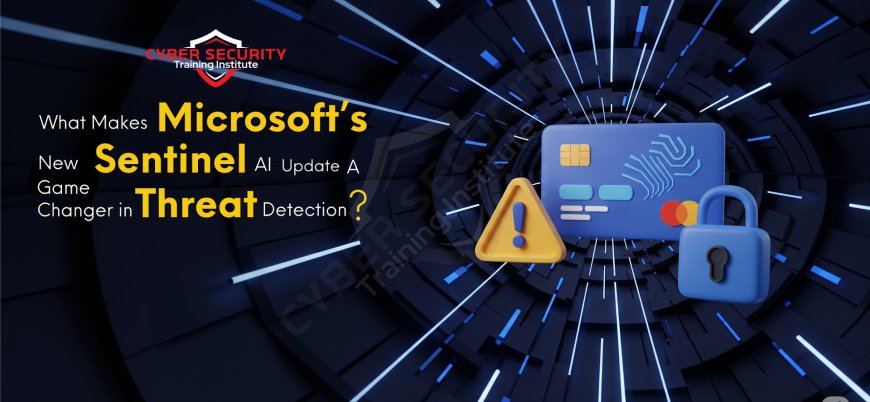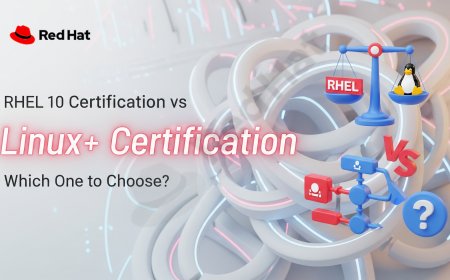What Makes Microsoft’s New Sentinel AI Update a Game-Changer in Threat Detection?
Explore how Microsoft’s 2025 Sentinel AI update is revolutionizing threat detection with real-time analysis, automated response, and advanced behavioral insights. Discover why it’s a must-have for modern cybersecurity. What makes Microsoft Sentinel AI a game-changer in 2025? This blog covers the latest AI-powered update, key features, use cases, and how it redefines threat detection and incident response.

Table of Contents
- Introduction
- What Is Microsoft Sentinel?
- Overview of the 2025 Sentinel AI Update
- Key Features of the New Sentinel AI
- Why the Update Is a Game-Changer
- Real-World Use Cases and Results
- How Sentinel AI Compares to Other Platforms
- Security and Compliance Enhancements
- Conclusion
- FAQ
Introduction
In 2025, Microsoft Sentinel is making headlines across the cybersecurity industry, thanks to its transformative AI-driven update. This enhancement has introduced automated reasoning, contextual analytics, and real-time adaptive threat detection. As threat actors become more sophisticated, organizations are looking for intelligent solutions that don't just detect threats but learn from them. This blog explores what makes the latest **Sentinel AI update** a true game-changer in cyber defense.
What Is Microsoft Sentinel?
Microsoft Sentinel is a cloud-native security information and event management (SIEM) system and security orchestration automated response (SOAR) solution. It collects data across all users, devices, apps, and infrastructure—both on-premises and in the cloud—allowing for centralized visibility and protection.
Overview of the 2025 Sentinel AI Update
The 2025 Sentinel AI Update integrates OpenAI’s latest models, advanced ML anomaly detection, and graph-based behavioral mapping. Microsoft is positioning this update as a pivotal move toward proactive threat hunting, shifting from reactive alerts to AI-led decision-making and autonomous remediation.
Key Features of the New Sentinel AI
- Natural Language Detection Rules: Analysts can now write detection rules in plain English using AI translation.
- Attack Storyboards: Automatically generates attack narratives that highlight the timeline and progression of threats.
- Auto-Enrichment of Incidents: Adds context using threat intel, geo-IP, and identity history without analyst input.
- Behavior-Based Detection: Learns user/device baselines to flag outliers using graph ML.
- Integrated Response Playbooks: Suggests and executes tailored responses using real-time context.
Why the Update Is a Game-Changer
This update makes Sentinel smarter, faster, and more autonomous:
- Reduces Analyst Fatigue: AI filters false positives and prioritizes critical alerts.
- Shorter Dwell Time: Rapid triage and automation reduce attacker persistence from hours to minutes.
- Human-AI Collaboration: Analysts now spend time on strategy, not alert fatigue.
- Threat Anticipation: Proactive pattern recognition anticipates attacks before they escalate.
Real-World Use Cases and Results
| Organization | Sector | Benefit of Sentinel AI | Impact Achieved |
|---|---|---|---|
| UK NHS Trust | Healthcare | Automated ransomware detection | Blocked 3 attacks in < 15 mins |
| Global Finance Firm | Banking | Behavioral anomaly mapping | Detected insider fraud early |
| Tech SaaS Provider | Technology | Storyboarding of zero-day attack | Incident containment within 20 min |
| Asian Telco | Telecom | Geo-IP triggered playbooks | Cut breach cost by 40% |
How Sentinel AI Compares to Other Platforms
While platforms like Splunk and IBM QRadar are robust, Microsoft Sentinel’s 2025 update excels in its native AI integration. Unlike bolt-on AI modules, Sentinel’s AI is baked into the detection pipeline, SOAR workflows, and user interface. This provides true intelligence at scale, rather than rule-based logic masked as AI.
Security and Compliance Enhancements
The update also strengthens compliance automation for industries like healthcare, finance, and government. New additions include:
- Automated GDPR/CCPA Alerts on potential data exposure
- Audit Trail Enhancements for regulatory review
- Data Sovereignty Enforcement in cross-border environments
Conclusion
The 2025 Sentinel AI update is a leap forward in intelligent threat detection. By harnessing the power of advanced AI models, Microsoft has enabled real-time, context-aware cyber defense that evolves with each incident. For enterprises looking to future-proof their security posture, adopting Sentinel’s AI capabilities may be the smartest move of the year.
FAQ
What is Microsoft Sentinel?
It’s a cloud-native SIEM and SOAR solution for collecting, analyzing, and responding to cybersecurity threats.
What’s new in the 2025 Sentinel update?
It includes advanced AI integration for behavioral analysis, automated threat storyboards, natural language detections, and real-time response automation.
How does AI improve threat detection?
AI learns user and network behavior to detect anomalies, reduce false positives, and suggest fast responses.
Can Sentinel integrate with third-party tools?
Yes, it supports 100+ connectors including AWS, Palo Alto, Cisco, ServiceNow, and more.
Is Sentinel only for Microsoft environments?
No, it's cloud-agnostic and supports hybrid and multi-cloud setups.
What industries benefit most from Sentinel AI?
Finance, healthcare, government, education, and telecom sectors benefit from real-time, AI-powered protection.
Does Sentinel support real-time response?
Yes, through automated playbooks, threat storyboarding, and immediate alert triage.
Is the AI in Sentinel explainable?
Yes, each AI decision is logged with context and logic pathways for audit and review.
How does Sentinel ensure compliance?
With automated alerts, detailed logging, and built-in tools for GDPR, HIPAA, and other standards.
How fast is threat detection with AI?
Many threats are identified and responded to in under 10 minutes, reducing dwell time significantly.
What's Your Reaction?
 Like
0
Like
0
 Dislike
0
Dislike
0
 Love
0
Love
0
 Funny
0
Funny
0
 Angry
0
Angry
0
 Sad
0
Sad
0
 Wow
0
Wow
0










![How to Install RHEL 10 on VMware/VirtualBox [Tutorial]](https://www.cybersecurityinstitute.in/blog/uploads/images/202509/image_430x256_68b56dc967a4a.jpg)





